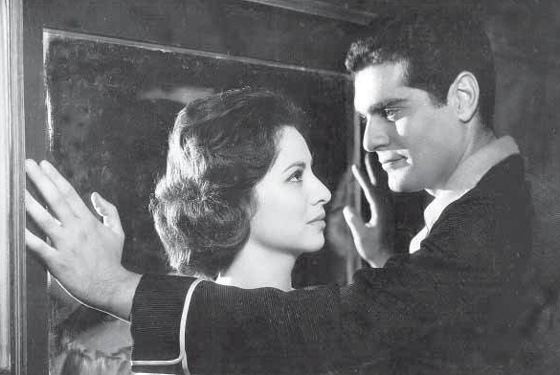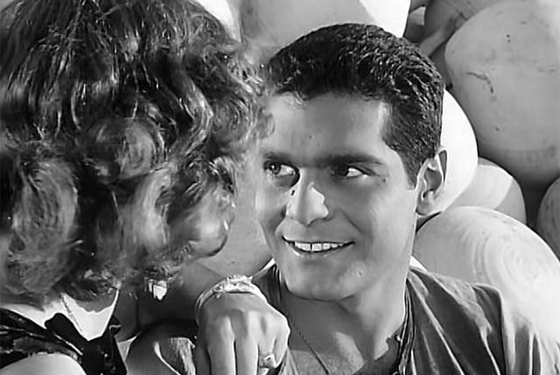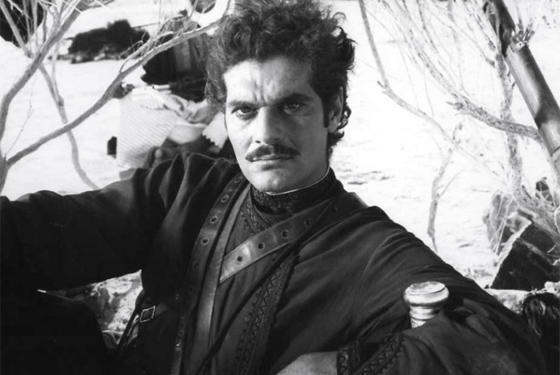Omar Sharif, the last hero from Egypt’s golden age of cinema, passed away on Friday at the age of 83 after suffering a heart attack at a Cairo hospital, his agent Steve Kenis announced.
The internationally acclaimed actor had been suffering from Alzheimer’s, his son Tarek told Spanish paper El Mundo in May.
According to Tarek, Sharif had been suffering from the degenerative disease for three years, which forced him to step out of the spotlight and retire.
"My father has Alzheimer's. It's difficult to determine what stage it's at. It's obvious he'll never improve and it will get worse,” Tarek said in May, explaining that the popular star was mixing up his films and confusing his fans with people he used to know.
Tarek also mentioned that Sharif was still asking about his former wife, Egyptian actress Faten Hamama, forgetting that she had passed away in January.
Despite his famous reputation for courting many women -- a long list that included renowned actresses Catherine Deneuve, Barbara Streisand and Ingrid Bergman -- Sharif was only married once, to Hamama.

Faten Hamama and Omar Sharif in The River of Love (1960)
The couple starred in Youssef Chahine’s Struggle in the Valley (1954) and remain Egypt’s favourite romantic duet in spite of their separation in the 1970s.
Sharif’s career include over a hundred films, made both in Egypt and abroad. In addition to Chahine, he worked with prominent Egyptian filmmakers such as Henry Barakat, Salah Abu Seif and Kamal El-Sheikh.
Considered one of the golden age heroes of Egyptian cinema, many of his movies are carved in the minds of Egyptians and Arabs as pillars of classical cinema.
The long list includes: A Man in Our House (1961), A Love Rumour (1959), Struggle on the Nile (1959), The River of Love (1960) based on Tolstoy’s Anna Karanina, and the Lady of the Palace (1958).

Omar Sharif and Hend Rostom in Struggle on the Nile (1959)
He garnered international fame after he acted in David Lean’s Lawrence of Arabia (1962), for which he earned a best supporting actor Oscar nomination and a Golden Globe Award for best supporting actor, as well as in Dr Zhivago (1965), for which he won a Golden Globe Award for best actor.
Sharif was born in Alexandria to Syrian-Lebanese parents, who named him Michelle Chalhoub.
He often described his mother as a strong and loving woman who had a great influence on him.
A regular card-player herself, Sharif's mother was the reason he fell in love with gambling.
“My passion for cards came from my mom; she was a good player. King Farouk used to play at our house, she encouraged me to gamble so people would say the boy is like his mother,” he once said.
He also owed his mother the international recognition he received.
“I was in French schools until the age of 11, then I started eating chocolates, cakes and soft drinks - my mom was furious, she thought her only son was fat and ugly and she had to do something,” he said.
“She thought of who made the worst food; it was the English, so she sent me to an English boarding school.”
He said her idea served him well - he lost weight, learnt English and developed a passion for acting at his school theatre.
“If it wasn’t for what happened I wouldn’t have gotten the role in Lawrence of Arabia or even become an actor,” he said.

Lawrence of Arabia (1962)
In spite of his fame, the renowned actor remained modest. Every once in a while he used to say that it was not his talent but mere luck that took him where he was.
He also said that in his generation there were many who were far more talented than him; they just were not given the right opportunity at the right time.
“Today, at this age, I am happy, its a gift from God. This is what I have asked God for all my life. I always wished to be happy with what I have -- my age, my money or the lack of, to be satisfied,” Sharif said in an interview with Lebanese television in 2004.
In the interview, which celebrated 50 years since the launch of his cinematic career, Sharif admitted that while he was grateful for the opportunities and benefits he received as a result of his international fame, it had contributed to a sense of instability in his life.
“Sometimes I wonder if it would have been better if I hadn't done Lawrence of Arabia- I was happy, I had my wife and my son. We [Sharif and Hamama] were both acting and I was a star in the Arab world - that could have been enough. I see no difference between being famous here or there. What’s the difference?
What matters is being known here and being loved by Egyptians and Arabs.”
“I am not regretting, I am just wondering,” he said.
Short link: